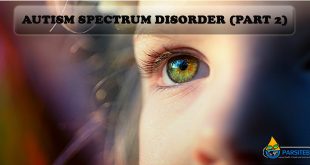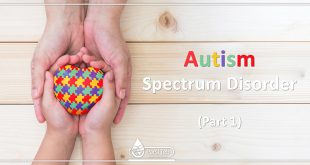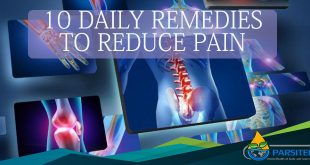Preventing A Second Heart Attack
If you’ve had a heart attack, you’re at risk of another. Here’s what you can do to lower that risk.
If you’ve had a heart attack, you probably have coronary artery disease. This is the buildup of fatty deposits called plaque in your blood vessels. The good news is that you can prevent new fatty buildup in your coronary arteries and decrease your risk of another heart attack.
Eat Well
Adopting healthier eating habits can help to heal your heart and protect it from future trouble. It can also help you control your weight, prevent or control diabetes, and ward off colorectal and other cancers.
Today’s heart-healthy diet isn’t the bland, low-fat, high-carbohydrate diet you’ve probably been hearing about for years. A growing body of research shows that not all fats are bad for the heart, and that some are actually good for it. The latest research also shows that not all carbohydrates are good for your heart, your waistline or the rest of you.
Eating right isn’t just about calories. What you eat is important, even if you don’t need to lose weight.
A healthy diet:
Contains healthy fats. Once you’ve cut way back on saturated fats and trans fats (the unhealthy fats), you can start adding healthy fats to your diet. Healthy fats are polyunsaturated and monounsaturated.
Contains healthy sources of carbohydrates. Eat more whole grains — foods such as whole-wheat bread, brown rice and oatmeal — to help lower cholesterol, improve blood sugar and insulin levels, control weight, protect the heart, guard against diabetes and keep your digestive system healthy.
Relies on healthy sources of protein. For a healthier heart, cut back on red meat and switch to fish. Why? The good fats in many types of fish protect the heart against erratic rhythms, prevent blood clots, and reduce blood pressure. The American Heart Association now recommends that people with heart disease eat fish once a day (and possibly take fish-oil supplements). Beans, nuts and seeds are also excellent sources of protein.
Includes plenty of fruits, vegetables and whole grains. These foods have more powerful effects on your health than most pills.
Tastes great. If it doesn’t, you probably won’t stick with it for long.
Maintain A Healthy Weight
No one likes to be called “overweight” or “obese.” It suggests that you don’t have any willpower. In fact, recent scientific discoveries show that genes play an important role in becoming overweight. While you can’t do anything about your genes, you can control your weight through a combination of diet and exercise. Certain medications also may help, although they cannot do the job by themselves, and may have side effects.
If you are overweight, you are not alone. Approximately half of the adults (and a growing number of children) in the United States are overweight. But there is a difference between you and most of those people: You have heart disease, and most of them do not. That makes weight control all the more important for you.
The one-two punch for a healthy weight is, not surprisingly, a good diet and regular exercise.
Get Active
You may be in no mood to exercise after the strain and stress of a heart attack. At first, exercising might be difficult, but it will definitely pay off later. Your doctor can help you to develop a suitable program to get active.
Even if you are not overweight, exercise can reduce high blood pressure, a leading cause of heart disease. Aerobic exercise, such as jogging, biking or brisk walking, three to five times a week for at least 30 minutes can prevent high blood pressure and improve overall health.
Stop Smoking
Smoking is very bad for your heart. It increases the development of blockages in the arteries of your heart (atherosclerosis) that lead to heart pain (angina), heart attacks and heart failure. Smoking increases the tendency of your blood to form clots that further block the flow of blood to your heart. And it may increase your risk of dangerous heart rhythms. You have heart disease, and that means you need to quit smoking.
Smokers often fear that because they have smoked for so long it’s too late to get any benefit from stopping. Not so. The sooner in life a person quits smoking, the greater benefit he or she will gain. However, almost no matter how long or how heavily a person has smoked, quitting smoking reduces a smoker’s risk of disease, and increases life expectancy. For example, smokers who stop smoking after a heart attack reduce their chances of a future heart attack and of dying of heart disease by 25 percent to 50 percent.
Reduce Your Stress
When it comes to stressful life events, heart attacks and serious medical procedures rank right near the top of the list. Heart trouble hammers home the reality that you’re not going to live forever. It makes the future hazy for you and those who depend on you. It complicates relationships and work, and sometimes even the simple activities of daily life.
You can combat stress in different ways. One widely used technique is the relaxation response, developed by Harvard Medical School’s Herbert Benson, M.D., who directs the Mind/Body Medical Institute in Boston. Here’s how to do it:
Sit in a comfortable chair in a quiet room, close your eyes and relax your muscles.
Focus on trying to breathe as evenly as you can. Breathe in slowly and then exhale slowly.
As you breathe, repeat a word aloud or in your mind. Pick something simple like “relax” or “easy.” Some people use religious words, others use words that have no meaning, such as the “om” used in transcendental meditation.
Once you establish a rhythm, keep breathing regularly with your muscles relaxed.
Exercise also relieves stress. Twenty minutes or so of an activity that increases your heart rate works best. If that’s not possible, a five-minute walk can help. Yoga, tai chi and even stretching also can help to calm you down.
Lower Your Blood Pressure
High blood pressure is very bad for your heart. It increases the development of blockages in the arteries of your heart (atherosclerosis) that lead to heart pain (angina), heart attacks and heart failure. It also puts a strain on the heart, because it has to pump harder when blood pressure is high.
After a heart attack or heart surgery, even if your blood pressure is normal, doctors may prescribe you pills to decrease the workload on the heart. These medicines include beta-blockers, ACE inhibitors and angiotensin receptor blockers.
Lower Your Cholesterol
High levels of total cholesterol and of LDL cholesterol (called “bad cholesterol”) in your blood are a risk factor for heart disease. Because you have heart disease, it is especially important that you get treatment for elevated cholesterol levels. People who do not have heart disease can lower their cholesterol by changing their diet. Because you have heart disease, your doctor will probably start you on medications, as well as recommending dietary changes.
After a heart attack or surgery, your cholesterol level may actually drop a bit. Your doctor may check your cholesterol before you leave the hospital. Some doctors will wait until you leave the hospital to determine if your cholesterol is elevated before starting you on cholesterol-lowering medicines.
Recent studies indicate that cholesterol-lowering medicines called “statins” may help people with heart disease even if their cholesterol levels are in the normal range. So don’t be surprised if you are put on a statin.
Consistently Use Prescribed Medications
After a heart attack, certain drugs can reduce your chance of having more heart trouble. Drugs are grouped by type or classes. The drug classes below benefit most people with heart disease. If you have had a heart attack or a procedure to open or bypass a clogged heart artery (coronary artery) and are not taking these drugs, talk to your doctor about them.
Beta-blockers reduce the heart’s workload by blocking the stimulating effects of the hormones epinephrine and norepinephrine. Beta-blockers lower blood pressure and protect the heart from developing dangerous heart rhythms.
ACE inhibitors block one of the body’s chemical systems that raise blood pressure. They are very effective at lowering blood pressure, and may have other beneficial effects on the heart.
Aspirin helps to prevent blood clots from forming in the coronary arteries. Such blood clots can block blood flow to the heart’s muscle cells, causing a heart attack.
Anticoagulants lower the risk of blood clots in the veins of the legs and inside the chambers of the heart. Doctors prescribe anticoagulants for people who are at above-average risk for blood clots in the legs or heart.
Statins prevent heart attacks and strokes in people with heart disease in two ways. They lower bad cholesterol (LDL), and they prevent cholesterol-filled plaque from breaking apart and sending clots into the bloodstream.
Consider A Cardiac Rehabilitation Program
If you think you will have difficulty following through on all of the above, ask your doctor if you are eligible for a cardiac rehab program.
 Parsi Teb Physical and Mental Health Journal
Parsi Teb Physical and Mental Health Journal 



